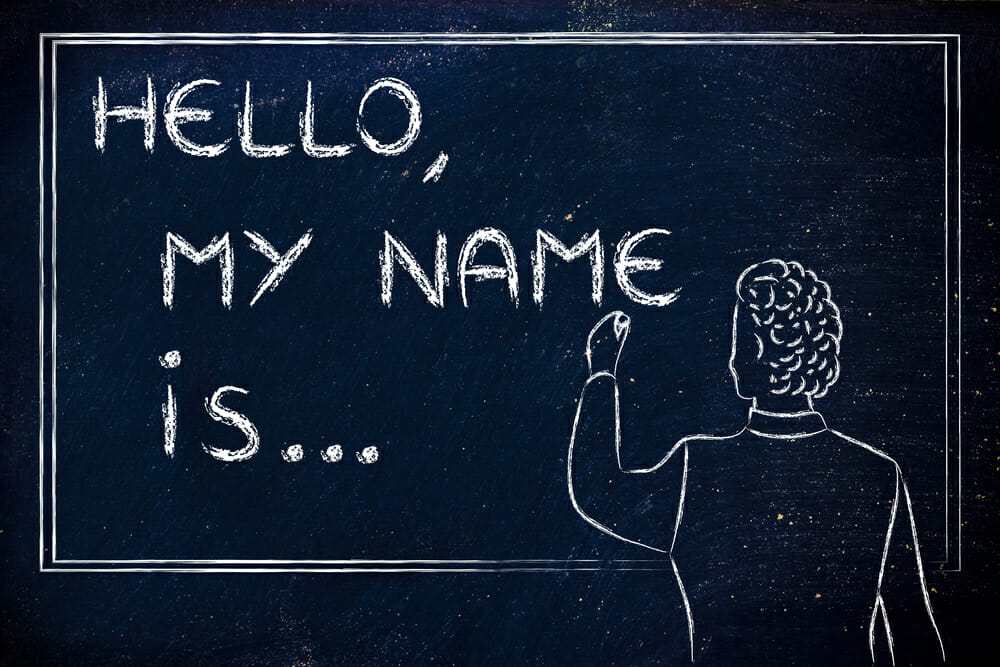
{Read in 5 Minutes} As a Trusts and Estates attorney, I often write Wills for people as part of their estate planning. One of the most important things that one does in a Will is to name a beneficiary. In a prior article, we talked about what happens if a beneficiary dies beforehand, but what happens if the beneficiary is still alive — but just known by another name?
This might happen for a variety of reasons. A lot of times, people may change their names, because of marriage or divorce. Sometimes, people change their names because they’ve gone through the process of a legal name change. This may be out of a desire to have a new name, or it might be to have a new name that reflects their gender identity. For whatever reason, a person who has had a name change does not lose their ability to inherit even if the Will lists them by a different name.
Example: Let’s say that I write a Will and I leave a bequest to my good friend whose name is Jane Smith. Jane Smith was married at the time that I wrote the Will (and Smith is her married name). She subsequently gets divorced and reverts to using her maiden name, which is Jones. Or, perhaps she gets divorced and remarried, and she becomes Jane Jones-Miller. Or, perhaps this is someone who’s been married and divorced several times and has several last names following their name, such as — for those Dynasty fans — Alexis Carrington Colby Dexter Rowan. (This is actually even a little bit before my time, if you can believe that, but I still find it amusing enough to include here.)
The point is that the person is still the person who I intended to include as a beneficiary. Just because their name changed, incident to marriage or divorce, does not nullify their right to inherit from my Estate. If you fall into this category, here are three tips that you may find helpful:
1. Contact the Executor
The Executor’s job is to collect assets and distribute them out to the beneficiaries. If the Executor doesn’t know who you are, that only makes their life more difficult. Pick up the phone and introduce yourself.
If you’re not sure who the Executor of the Estate is, remember that anything filed in the New York Surrogate’s Court, is a matter of public record, including the contact information for the Executor of the Estate. As I mentioned in a previous article, these records are now largely searchable online, so this should be easy enough to do.
2. Prove Your Identity
If the Executor is not familiar with you or your relationship to the deceased, they may not be aware that you used to be known by a prior name. Be prepared with some sort of document showing that you used to be known by the name listed in the Will. That might be something like a birth certificate, a marriage certificate, a divorce decree, or a legal name-change Court Order. The Executor isn’t hassling you by asking for this, they are just doing their due diligence to make sure that they are paying the correct bequest to the correct person.
3. If Other Things Have Changed, It’s Also Not a Big Deal.
For example, some people when they write their Wills choose to list the beneficiary’s name and the address in the Will. I personally am not a fan of this, because people tend to move from time to time, and I don’t see the need for people to constantly update their Will for this reason. However, that address is another way to identify you as the person mentioned in the Will. This is especially important if you have a very common name. John Smith, Mary Jones, etc.
What if your old name and your old address are listed? Again, see above. This is not the end of the world. You can easily show that you used to be known by the name listed in the Will, and you can also show that you used to live at the prior address. A copy of an old identification card, a tax return, or a voter registration card are all easy ways to prove your prior residence.
Moral of the story is, don’t panic. So long as you’re recognized and reach out to the Executor, there’s no reason that you should not receive your inheritance in a timely manner and ensure that the wishes of the deceased are fully recognized.
For more information on this topic, please contact me.

